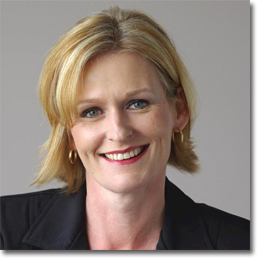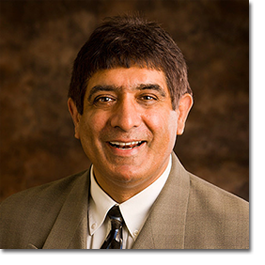What happens when you don’t pay your bills?
Aaron Broverman,Yahoo Finance Canada Wed, May 24 7:00 AM EDT
If you ever forgot to pay your credit card bill, or couldn’t pay your hydro bill, do you know what would happen?
Sure, your credit rating goes down and collections might be called, but there are many details and nuances that occur before, after and in between those two major events that many are unaware of. We asked the experts to walk us through the process step by step, and they dropped a few tidbits of savvy financial advice along the way.
The goody-two-shoes
Barry Choi is one such person. The personal finance and travel expert behind the Money We Have blog is used to paying his bills in full and on time all the time. Well, except for one time he wrote about for MoneySense.
“The only time I really noticed it was a month later when I got my statement and there were interest charges on it,” he says. “I’m like, ‘Wait, wait, wait…what’s going on?’ So then I go back, I check my records and I realize, ‘Aw crap! I forgot to pay my bill.’”
But he didn’t get discouraged. As a long time customer who consistently paid his bills on time, he had an advantage that his gold star status afforded him. All he had to do was call them and they’d reverse the interest charges, but even he was unsure it would be that easy.
“I wasn’t expecting too much of a battle, but at the same time I was expecting a little bit of a battle,” he says.
But the credit card company was actually very accommodating. They reversed the charges after only a short conversation, but Choi did one key thing to strengthen his position even further – he paid the bill before he ever called them.
“In my case, I missed the deadline and for me I had to prove to them that this was a one-time thing or wasn’t intentional, but because of my payment history I knew it wouldn’t be an issue.”
The other thing that worked in his favour (and something to be aware of if you’re trying to get charges waived) was his long history with his credit card provider.
“I have heard from some people that if you have a new credit card and have had it for say only six months, even if you’ve made your payments on time, your provider may not have enough credit history on you to warrant the fees get waived immediately,” says Choi.
Choi was fortunate that he was a customer in good standing and only owed interest in the double digits, but even if you’re a little deeper in debt Choi says communicating with your lenders goes a long way.
“If you’re asking for hundreds of dollars back, it may not be as easy unless you are in a similar situation to me and it was a complete accident, but your creditors and lenders just want to see that you’re consistent with your payments. They’re happy to have a good customer and they understand that good customer service goes a long way.”
The dance of delinquency
If you’re not fortunate enough to have the history of paying off your balance each month like Choi, the effects are a little different. First of all, if you carry a balance, interest charges are incurred. This applies to all kinds bills and loans from your cable bill to your car payment. If you don’t pay, expect to take on interest.
Plus, if you miss more than one payment on any bill consecutively, it starts affecting your credit score.
“If you miss two payments consecutively with no notice or prior discussion with your creditor, your credit score will drop dramatically with no warning – about 60 to 100 points right away,” says Choi.
Generally, you don’t have to worry if your credit score is above 700, but anything below 650 is considered a bad credit score. However, both credit bureaus – Equifax and TransUnion – could have different scores for one individual and each creditor, from credit card to car companies, has a different method for determining credit worthiness.
“For a bank loan, your credit score might be too low, but for a car company, it might be okay,” says Choi.
Following the initial drop in your credit score, the creditor will generally try to reach out to you by phone just to find out what’s going and find out if you’re physically incapable of paying your bill. If you answer, they will usually put together a payment plan for you. But if you ignore their calls, or fail to pay by the date set on the payment arrangement, your creditor will wash their hands of you and turn your debt over to a collection agency without further warning.
“Once it goes to collections, your creditor has essentially sold your debt and as soon as you have anything in collections, your credit score takes another hit and may drop another 100 points,” says Choi.
Even if you pay off the debt as soon as you get a notice from the collections agency, the record of having debt in collections will remain on your credit report for six years, which makes it in extremely hard to take out or utilize any more credit. You won’t be able to apply for a mortgage, finance a car or increase your credit limit, which makes it very hard to rebuild your credit at a time you need to most.
“It’s a catch-22, but there’s still a way to rebuild your credit after everything is resolved. You can go to a bank and obtain a secured card where you secure the limit on the card by paying it in cash up front and once you use up the balance – it’s gone,” says Choi.
Physical consequences
Not paying your bills doesn’t just do a number on your credit score and make it harder to obtain credit and rebuild a credit history in the future; it also can have major consequences on your life and physical world. Your stuff can be repossessed, your cable and Internet can get cut off and your power and heat can get shut down. However, you have many chances to right the ship before it gets to that.
Derek Strasberg (who asked that his real name not be used to avoid issues with his employer) is a field technician for a Canadian utility company. It’s his job to turn off your power when you don’t pay your bill.
“Until October 2016, the utility bill appeared every two months. (Now that it’s monthly) I’d see a lot of people get caught in collections simply because they forgot when the last bill appeared and it would get lost in the pile,” says Strasberg.
Regardless, once you are 30 to 60 days overdue, Strasberg gets sent out. 21 days before that moment you get an automated phone call to remind you to pay it. Then, ten days later if it’s still not addressed, a reminder notice gets put in the mail. If you still ignore it, Strasberg is on his way, but not before an automated phone call 48 hours beforehand.
“I get a work order to deliver a notice that says you have ten days to address this and then on the eleventh day, you are going to be up for disconnection,” says Stasberg. “Now, keep in mind, ‘addressed’ does not mean paid, it simply means you’ve called the company, told them you are aware of the notices and you can make an arrangement to pay the bill right there over the phone.” Even if you don’t call, Strasberg can’t forget about you too far outside that ten-day window or he has to deliver another notice and you get another ten-day window.
Even if you don’t call, Strasberg can’t ignore you for longer than the ten-day window, otherwise he has to deliver another notice and you get another ten days.
“Plus, we don’t really show up on the first day you’re eligible for disconnection,” he says. “It takes a while for payments to post, so you usually get a few days within that window.”
But even after Strasberg shows up for disconnection, he tries to collect a payment either by credit card, cash or cheque. If two or more cheques on your account have bounced, however, a cheque will not be accepted.
If all those attempts to communicate with you have failed, your power gets disconnected, either by pulling the metre off and blocking the flow of power or by turning the switch off and locking it up with a hydro padlock so that you can’t turn it back on. However, as of February 2017, your power cannot be disconnected in the winter.
“Disconnection is always the last resort. The last thing the power company wants to do is disconnect your power, they would much rather have you pay the bill,” says Strasberg.
This goes for your other bills as well. No one wants to have to chase you to get their money, so do your best to pay and if you can’t, reach out to a credit counsellor or, if your situation is more dire, a bankruptcy trustee
https://ca.yahoo.com/finance/news/happens-dont-pay-bills-110038493.html
Comments are closed.










